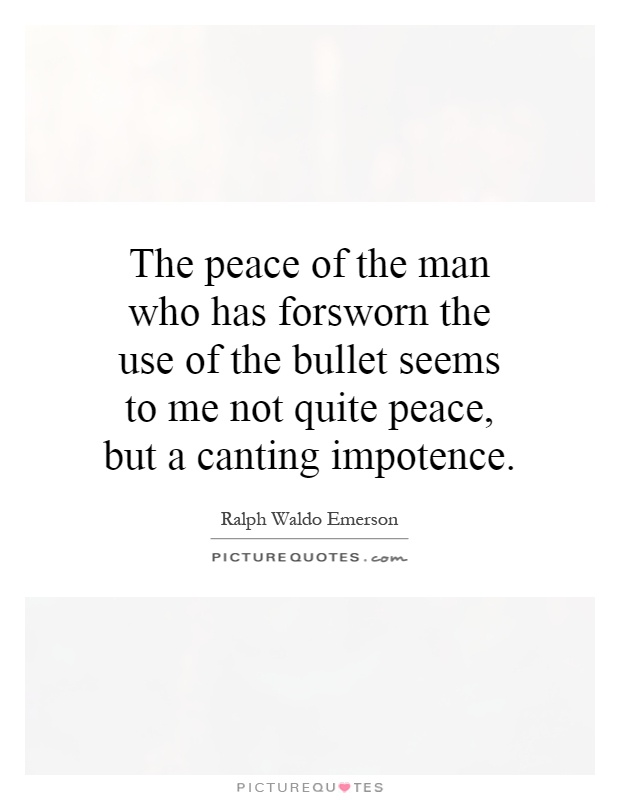The peace of the man who has forsworn the use of the bullet seems to me not quite peace, but a canting impotence

The peace of the man who has forsworn the use of the bullet seems to me not quite peace, but a canting impotence
Ralph Waldo Emerson, a prominent American essayist and philosopher, was known for his transcendentalist beliefs and his emphasis on self-reliance and individualism. In his essay "Self-Reliance," Emerson explores the idea of personal empowerment and the importance of trusting one's own instincts and abilities. One of the key themes in this essay is the idea of taking action and not being afraid to assert oneself in the world.Emerson's quote, "The peace of the man who has forsworn the use of the bullet seems to me not quite peace, but a canting impotence," speaks to the idea that true peace comes from being able to defend oneself and take action when necessary. In this context, the "bullet" symbolizes the ability to stand up for oneself and assert one's will in the face of adversity. By forswearing the use of the bullet, the man is essentially renouncing his ability to defend himself and take control of his own destiny.
Emerson believed that true peace comes from within, from a sense of self-assurance and confidence in one's own abilities. By relinquishing the use of the bullet, the man is denying himself the opportunity to assert his will and take control of his own life. This, in Emerson's view, is a form of "canting impotence," a false sense of peace that is ultimately rooted in weakness and fear.
Emerson's words serve as a reminder that true peace comes from being able to stand up for oneself and take action when necessary. By embracing our own power and agency, we can find a deeper sense of peace and fulfillment in our lives. In the end, it is only by taking control of our own destinies that we can truly find peace and happiness.












 Friendship Quotes
Friendship Quotes Love Quotes
Love Quotes Life Quotes
Life Quotes Funny Quotes
Funny Quotes Motivational Quotes
Motivational Quotes Inspirational Quotes
Inspirational Quotes